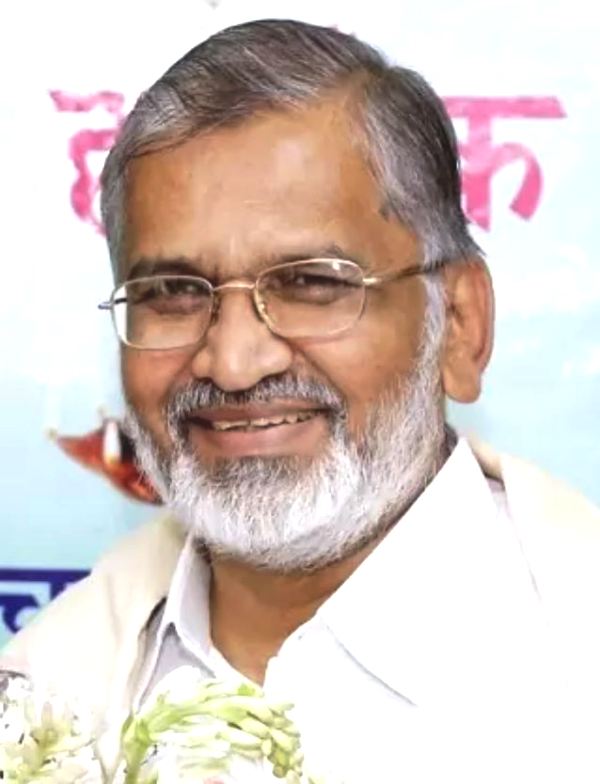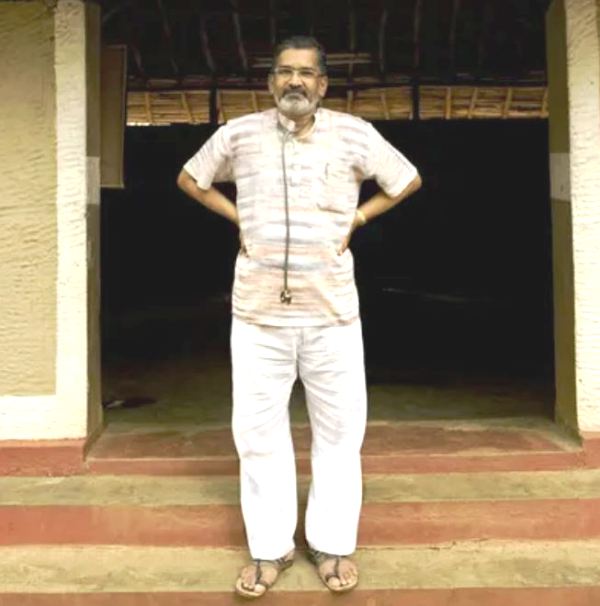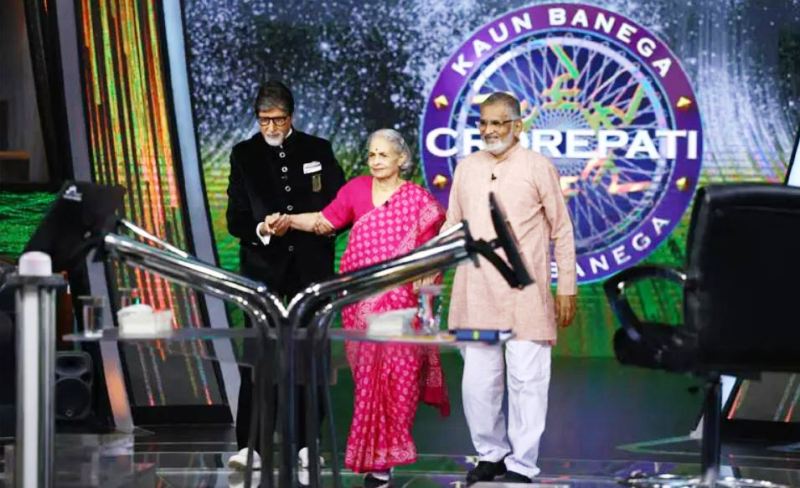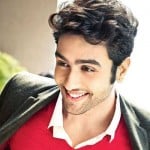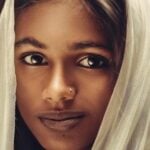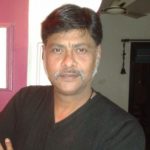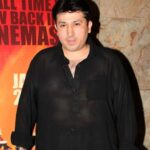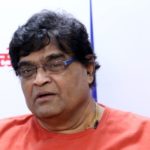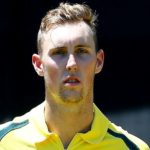Abhay Bang Age, Wife, Children, Family, Biography
Quick Info→
Wife: Rani Bang
Hometown: Wardha, Maharashtra
Age: 74 Years
| Bio/Wiki | |
|---|---|
| Other Name | Dr. Abhay Bang |
| Profession(s) | • Activist • Community Health Researcher |
| Physical Stats | |
| Height (approx.) | 5' 7" (170 cm) |
| Eye Colour | Black |
| Hair Colour | Salt & Pepper |
| Career | |
| Awards, Honours, Achievements | 1987 • Adivasi Sevak Award by the Government of Maharashtra for Health Care and Research in Tribal Area 1994 • Mahatma Gandhi Award 1996 • Natu Foundation Award for Contribution to Social Work in Maharashtra (January) • Named 'The Couple of the Year' (with Rani Bang) by The Week • Indian Council of Medical Research's Sheshadri Gold Medal for 'SEARCH' for outstanding contribution to the field of community medicine in India 1999 • Dr. James Tong Award by the Voluntary Health Association of India for 'SEARCH' for being the outstanding voluntary institution in India 2000 • Anant Bhalerao Award • Sahitya Samrat Na. Chi. Kelkar Literary Award • Sant Bal Award for Humanitarian Service, Ahmedabad • Yashwantrao Chavan Pratishthan Award for the outstanding contribution to rural development in Maharashtra 2001 • Vinaykumar Parashar Smruti Purskar, Akola • The State Award for Literary Writing for the Marathi-language book 'My Enlightening Heart Disease' (November) • The State Award for De-addiction by the Government of Maharashtra 2002 • Ramshastri Prabhune Award for Social Justice, Satara • Vivekanand Manav Seva Award, Pune • Sat Paul Mittal National Award by the Indian Association of Parliamentarians on Population and Development (IAPPD), New Delhi 2003 • Rajiv Gandhi Award, Mumbai • Prabhat Puraskar for Social Work by V. Shantaram Trust • Maharashtra Bhushan 2004 • Lok Shikshak Puraskar by the Pandurang Apte Guruji Smarak Trust • Diwaliben Mohanlal Mehta Award, Mumbai (7 January) • Devi Ahilya Bai Holkar Award from Shri Ahilya Utsav Samiti, Indore 2005 • Bhai Ghannaiya Award from Red Swastik Society, Mumbai • Navratna Puraskar from Doordarshan Sahyadri, Mumbai • Anandamayi Award from Deenanath Mangeshkar Smruti Pratishthan, Mumbai • Spirit of Mastek Award for exemplary work that has helped reduce child deaths at Gadchiroli (December) • Named as the Global Health Hero by Time, USA 2006 • Alert Citizen Award from Alert Citizen Forum, Maharashtra • MacArthur Foundation International Award for 'SEARCH' for creative and social work 2007 • Pariwartanwadi Award from Dr. Shivram Mali Public Act, Kolhapur 2008 • Marotrao Dhule Smruti Puraskar, Nevasa • Qimpro Platinum Standard Award for National Statesman for Quality – Health Care from Qimpro Foundation, Mumbai 2009 • Baa Award from Gandhi National Memorial Society, Pune • Bhausaheb Dhamankar Preana Puraskar • National Character Award from Charitrya Pratishthan, Pune 2010 • Dory Storms Child Survival Recognition Award from M Core, Washington • Swami Rama Humanitarian Award from Himalayan Institute Hospital Trust, Dehradun • Received Jewel of Maharashtra Award from State DNL Summit in association with Zee 24 Taas and Government of Maharashtra, Mumbai • Freedom-fighter Dada Undalkar Social Award from Dada Undalkar Smarak Samiti, Undale, Pune • Samajik Gaurav Puraskar from URL Foundation, Mumbai • Jeevan Gaurav Puraskar from Haware Foundation, Mumbai 2011 • Anna Hazare Samaj Ratna Puraskar from Adarsh College of Arts, Commerce, and Science and Pragati Andh Vidyalaya, Badlapur • CNN-IBN Life Time Achievement Award from Reliance Foundation • Swasthya Bharat Samman from Zee News and LIC, New Delhi • Jaitai Matru Gaurav Puraskar from Shri Jaitai Temple Committee, Wani • Jeevan Sadhana Award from Nagpur University • Vocational Excellence Award from Rotary Club of Pune 2012 • Prerana Poonj Sanman at the Vidarbh Hindi Sahitya Sammelan, Nagpur • Pulotsav Social Gratitude Award, Pune • D B Ratnappa Kumbhar Samaj Bhushan Award, Jaysingpur • Abhijeetdada Kadam Humanitarian Award from Abhijeet Dada Kadam Memorial Foundation, Pune • Professional Excellence Award from the Academy of Medical Sciences, Nagpur 2013 • Honoured with the 2012 Distinguished Alumnus Award by the Department of International Health at Johns Hopkins Bloomberg School of Public Health, USA 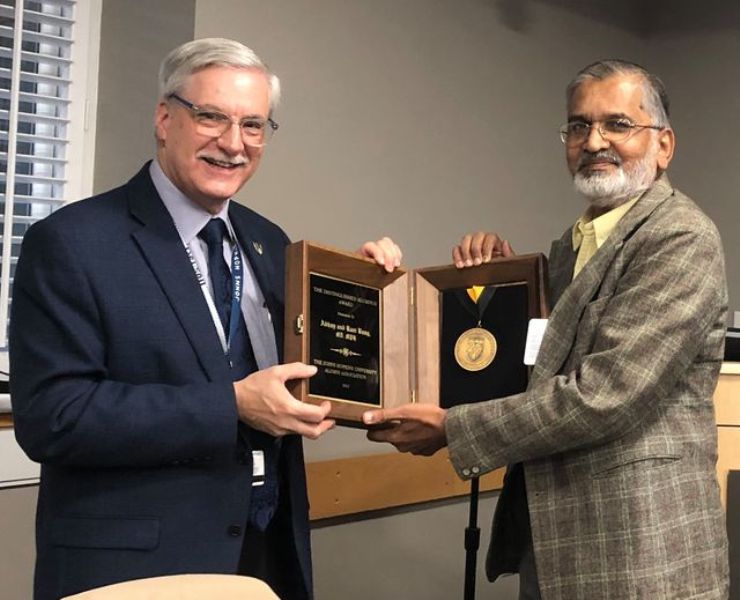 • Elected to the Society of Scholars by the Johns Hopkin University • Babasaheb Ambedkar Daleet Mitra Puraskar • Dr. Narendra Dabholkar Smruti Award, Satara • Manavta Sewa Puraskar by Suryoday Trust Indore • Dr. Mokshagundam Visvesvaraya Puraskar from the Subordinate Engineers Association, Gadchiroli • Baba Amte Manavta Puraskar from Vidyarthi Sahayyak Samiti, Warora 2014 • Sanjeevani Sanman from Sahyadri Doodarshan, Mumbai • Desasnehi Award from India Development Foundation, Bangalore • Kesharilalji Bordia Smruti Sanman from Jeevan Raksha Charitable Trust, Udaipur 2015 • Doctorate Honoris Causa from Sanjay Gandhi Postgraduate Institute of Medical Sciences, Lucknow • Social Award from Krantisinh Nana Patil Mahavidyalaya, Sangli, Maharashtra • Doctor of Literature (D. Litt) from Tilak Maharashtra Vidyapeeth, Pune 2016 • Public Health Champion Award for Outstanding Contribution to Public Health in the Country from WHO India • Vidarbha Bhushan Award from Vidarbha Samaj Sangh, Mumbai • Dr. Gujar Award from Maharashtra Arogya Mandal, Hadapsar, Pune • Received the 2015 IMC Juran Quality Medal from IMC Ramkrishna Bajaj National Quality Award Trust, Mumbai • Civil Liberties Award from Nani A. Palkhivala Memorial Trust, Mumbai 2017 • Adarniya P. D. Patil Maharashtra Bhushan Purskar, Karad • Life Time Achievement Award at the Navabharat Health Care Summit and Awards, Mumbai • Sahyadri Lifetime Achievement Award from Sahyadri Pratishthan Maharashtra • Janseva Puraskar from Nemgonda Dada Patil Night College, Sangli 2018 • Lifetime Achievement Award from the Organisation of Pharmaceutical Producers of India (OPPI), Mumbai • Life Sadhana Gaurav Award from Gondwana University, Gadchiroli • Healthcare Humanitarian Award from the Federation of Indian Chambers of Commerce & Industry (FICCI), New Delhi (30 August) • Iconic Changemaker Award from Finance and Corporate Affairs Minister Arun Jaitley at the Businessline Changemaker Awards in New Delhi • Mrudgandh Puraskar from Vitthal Umap Foundation, Mumbai • Padma Shri 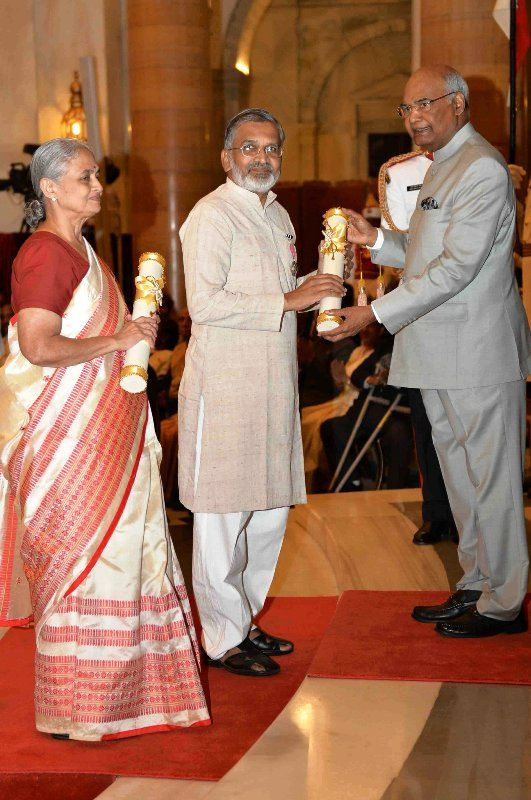 2019 • Doctor of Literature (D.Litt.) Honoris Causa from Maharashtra University of Health Sciences, Nashik (presented by the Maharashtra CM in Mumbai) • Shahu, Phule, Ambedkar Award 2020 • JRD Tata Award from Ratan Tata for Excellence in Public Service at the Population Foundation of India, New Delhi 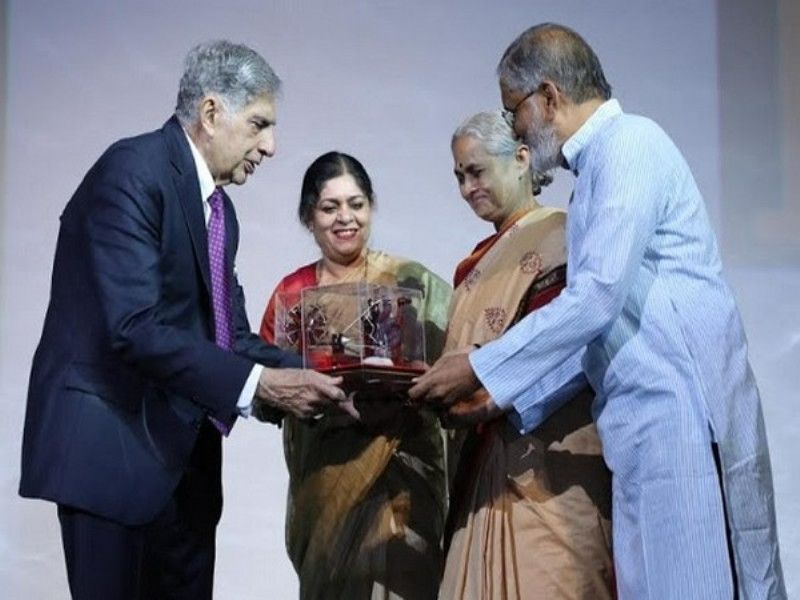 • Doctor of Science (DSc) from Pravara Institute of Medical Sciences University, Loni, Maharashtra 2024 • Santokbaa Humanitarian Award 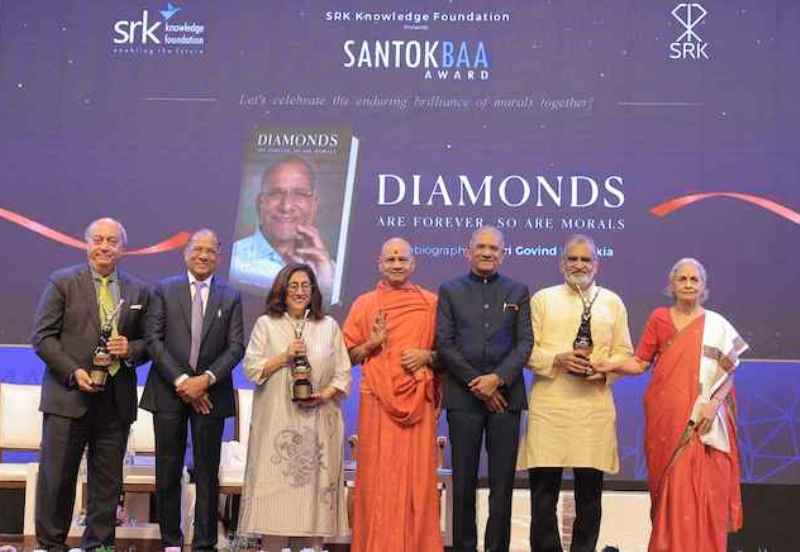 |
| Personal Life | |
| Date of Birth | 23 September 1950 (Saturday) |
| Age (as of 2024) | 74 Years |
| Birthplace | Wardha, Maharashtra, India |
| Zodiac sign | Virgo |
| Nationality | Indian |
| Hometown | Wardha |
| School | Anand Niketan, Sevagram Ashram, Wardha (until 9th class) |
| College/University | • Nagpur University, Maharashtra • Johns Hopkins University, USA |
| Educational Qualification(s) | • MBBS from Nagpur University (1972) • MD Medicine from Nagpur University (1977) • Master of Public Health (MPH) from Johns Hopkins University (1984) |
| Relationships & More | |
| Marital Status | Married |
| Marriage Date | Year, 1977 |
| Family | |
| Wife/Spouse | Rani Bang (activist, community health researcher)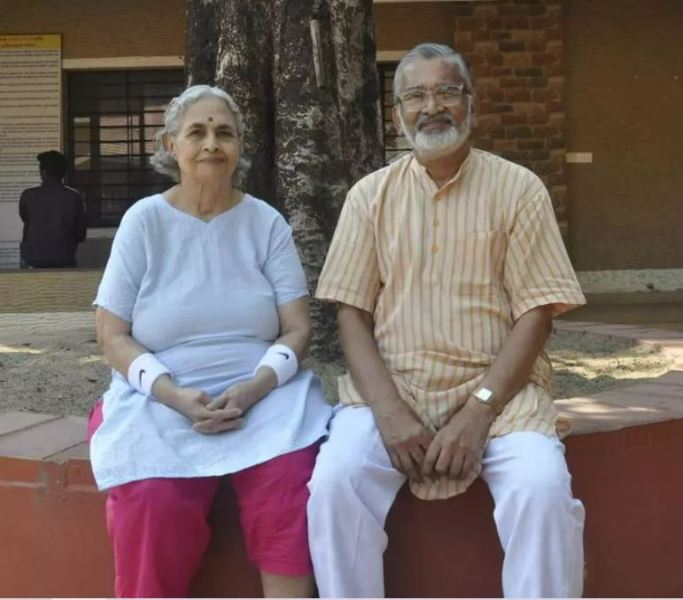 |
| Children | Son(s)- 2 • Anand Bang (elder) (physician, health specialist) • Amrut Bang (younger) (program director at NIRMAN) 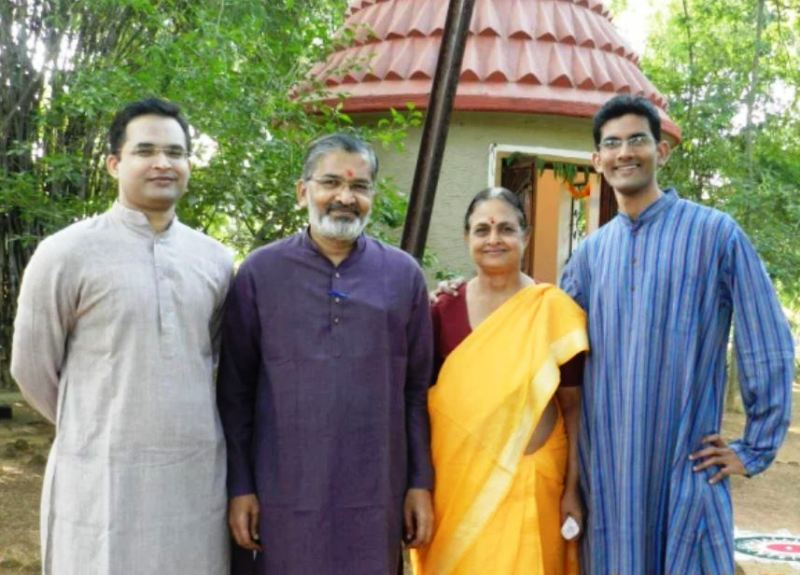 Daughter- None |
| Parents | Father- Thakurdas Bang (philosopher, economist) (deceased) Mother- Suman Bang |
| Siblings | Brother- Ashok (elder) Sister- None |
Some Lesser Known Facts About Abhay Bang
- Abhay Bang grew up at the Sevagram Ashram in Wardha under the guidance of Mahatma Gandhi’s disciple Acharya Vinoba Bhave. He attended Anand Niketan, a school that followed Gandhi’s Nai Taleem method, until 9th grade.
- His parents were dedicated followers of Mahatma Gandhi’s principles and the Sarvodaya Movement. Following Gandhi’s advice, his father cancelled his plans to pursue economics in the US and stayed in India to understand economic concepts through the study of villages.
- At 13, Abhay decided to focus on improving the health of villagers after a conversation with his elder brother Ashok about their future goals.
- In 1972, Abhay completed MBBS at Nagpur University, where he topped and earned three gold medals.
- In 1974, he secured first place in the All India Competition for MD Selection at the Postgraduate Institute of Medical Education and Research (PGIMER), Chandigarh.
- In 1977, he completed his MD in Medicine at Nagpur University and again secured the first position. In the same year, he married his fellow student Rani Bang.
- In 1984, he completed his MPH at Johns Hopkins University in the US with a grade point average of 3.96/4 (99%). Abhay and Rani, who studied there together, returned to India to focus on supporting underserved communities.
- After returning to India, they began working in tribal and rural areas of Gadchiroli, Maharashtra.
- In December 1985, Abhay and his wife Rani established SEARCH (Society for Education, Action and Research in Community Health) in Gadchiroli to address local healthcare needs. They worked with local communities to create clinics and build a hospital for them.
- Their Home-Based Neonatal Care (HBNC) model, developed in Gadchiroli, led to a significant drop in infant mortality and sparked global interest in similar approaches. Despite initial doubts, his method gained acceptance over time, which led to the training of about 8,00,000 village women in India through the ASHA program.
- In 1988, they tackled high infant mortality in Gadchiroli by training local women in neonatal care using the HBNC model, which lowered the rate from 121 to 30 deaths per 1,000 births.
- The duo’s HBNC model was later adopted by India in its 12th National Fiver-Year Plan to help reduce infant mortality. It was also adopted by WHO, UNICEF, and USAID to reduce infant mortality in developing countries.
- They conducted participatory action research against alcohol from 1988 to 1993, which raised awareness about its ill effects. This led to a public demand for an alcohol ban, and in 1993, Gadchiroli became the first district in Maharashtra to implement this ban.
- Abhay’s major research includes a field trial conducted between 1988 and 1990, which focused on controlling Acute Respiratory Infection (ARI) by using Village Health Workers (VHWs) and Traditional Birth Attendants (TBA).
- In 1989, the duo carried out the first community-based estimate of gynaecological problems in rural women, which influenced international policy on women’s reproductive health.
- In 1990, he developed a single device called the Breath Counter to help illiterate traditional birth attendants diagnose pneumonia in children.
- From 1992 to 1995, Abhay conducted studies on reproductive health problems in males. He also researched the health issues faced by home-cared newborns from 1995 to 1996.
- From 1992 to 1998, Abhay led a five-year field trial on home-based neonatal care aimed at reducing neonatal mortality. He also conducted a two-year longitudinal multisite study on child mortality in Maharashtra between 1998 and 2000.
- Since 1996, Abhay has been a member of the Tribal Advisory Council for the Government of Maharashtra.
- From 1998 to 2000, he served as a member of the Scientist Advisory Board of the Indian Council of Medical Research in New Delhi.
- From 2000 to 2002, he served as a member of the Committee on Improving Birth Outcomes in Developing Countries, which was constituted by the Global Board on Health, National Academy of Sciences, USA.
- Abhay served as a member of the National Expert Group on Health for planning the 10th National Five-Year Plan of the Government of India from 2001 to 2002.
- Abhay and Rani served as a member of the National Commission on Population for the Government of India from 2000 to 2005.
- Bang was appointed as the chairman of the Child Death Review Committee for the Government of Maharashtra in December 2003. He served in this position till March 2005.
- Abhay served as a member of the Steering Committee for Tropical Disease Research at the World Health Organisation in Geneva, Switzerland, from 2002 to 2004.
- In 2002, he became a member of the Advisory Board for the Saving Newborn Lives (SNL) initiative at Save the Children, USA. He continued serving in this position till 2005.
- From 2003 to 2006, he served as a member of the Governing Board of the National Population Stabilisation Fund (NPSF).
- From 2003 to 2011, Abhay served as a member of the Project Review Committee for the ICMR research project on young infants.
- In 2004, he became a member of the National Commission on Macroeconomics and Health (NCMH).
- In 2005, he served as the chairman of the Government of India’s Advisory Group on Training of ASHA in Home-based Newborn Care.
- Since 2005, Abhay has been a member of the High-Level Committee chaired by the Chief Secretary of the Government of Maharashtra.
- Abhay has authored many books including ‘Sevagram to Shodhgram’ (2006) and ‘Health Care Which Way to Go?’ (2011).
- In 2007, he became a member of the National ASHA Mentoring Group (NAMG) under the Ministry of Health and Family Welfare.
- Abhay served as a member of the Mission Steering Group (MSG) for the National Health Mission (NHM) under the Ministry of Health and Family Welfare from 2008 to 2014.
- In 2009-2010, he conducted research on the prevalence of tobacco consumption and its effect on household expenditure in Gadchiroli. He also led a community-based study to estimate the amount of back pain and musculoskeletal pain in the community.
- Abhay served as a member of the High-Level Expert Group (HLEG) on Universal Health Coverage (UHC) in India, established by the Planning Commission of the Government of India, from 2010 to 2012.
- In 2011, Bang became a member of the High-Level Committee on Balanced Regional Development for the Government of Maharashtra. He served in this position until 2013.
- Abhay served as a member of the Committee on Alcohol and Its Control in Chandrapur from 2011 to 2012.
- He served as the chairman of the Expert Committee on Tribal Health for the Ministry of Health and Family Welfare from 2013 to 2018.
- Abhay served as a member of the High-Level Committee on Tribal Communities of India under the Ministry of Tribal Affairs from 2013 to 2014.
- From 2014 to 2017, he served as a member of the Comptroller and Auditor General of India’s Audit Advisory Board.
- In May 2017, the Bombay High Court asked Abhay for his advice on tackling child mortality and malnutrition in Maharashtra. The court approved his suggestions and instructed the state government to implement them in their policies.
- Abhay has served as a member of the Central Council of the Ministry of Health and Family Welfare, Government of India.
- In 2024, Abhay and Rani appeared on the television game show Kaun Banega Crorepati 16, which aired on Sony Entertainment Television.

